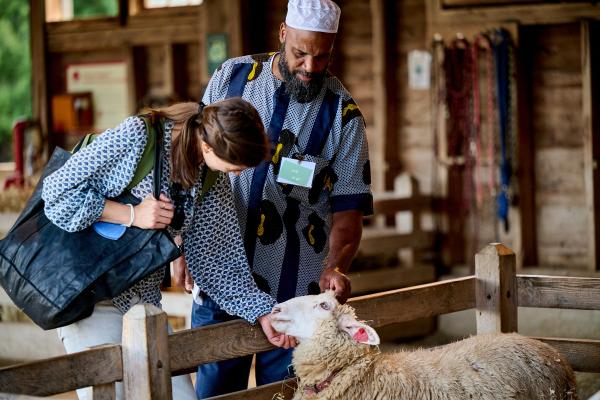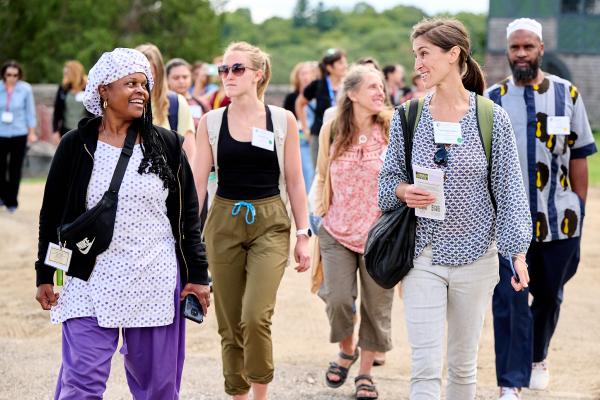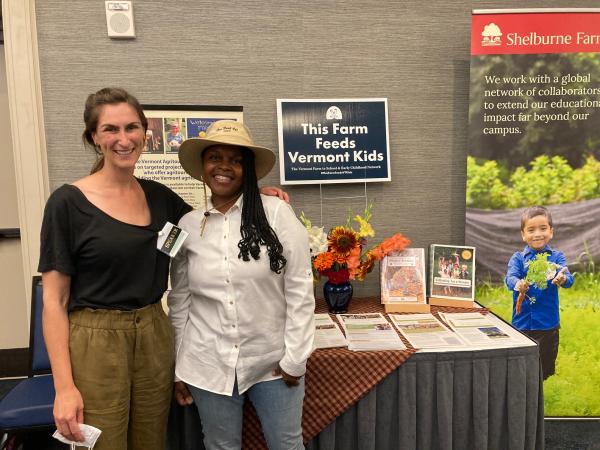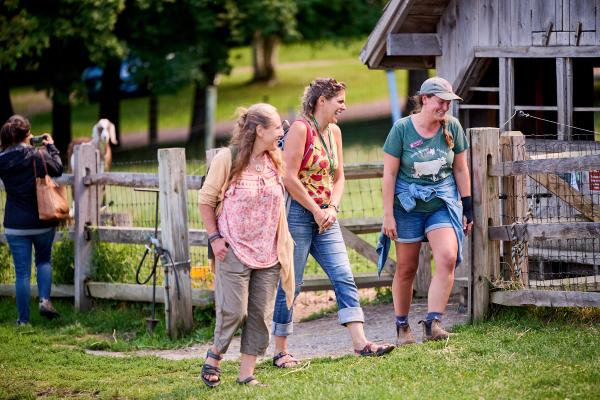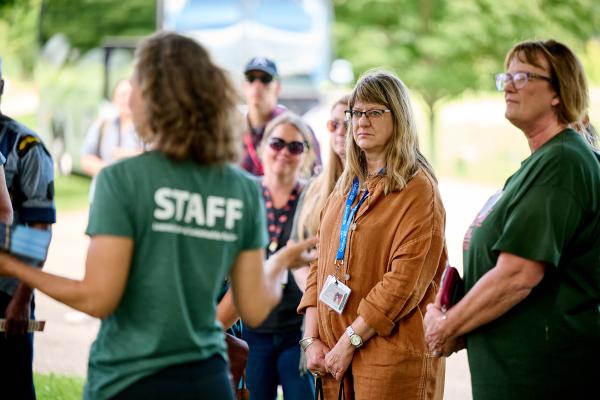Reflections on Agritourism, here and worldwide
It was really powerful to be a part of the International Workshop on Agritourism that was held in Burlington recently, as an ambassador for Shelburne Farms and the Farm-Based Education Network, and as a field trip leader to our own campus.
Agritourism is an important and growing industry in Vermont, generating $51.7 million in 2017 from direct sales of farm products as well as tours, programs, and overnight stays. Nationwide, it's a $3.7 billion industry.
Dollars aside, agritourism is a critical way to connect people with local food systems, and help them understand Vermont's working farm and forest landscapes. Over time, it can shape people's decisions about the food they eat and the kind of agriculture they want to support in their own communities and beyond. But like agriculture itself, agritourism is complex! Farmers and food producers who offer experiences to the public face challenges that aren't always apparent to the casual observer.
All of these ideas took center stage at this international gathering of farmers, researchers, agricultural service providers, and tourism experts. The conference was buzzing. Here are a few of my takeaways:
- Being a farm and offering education at the same time is a delicate balancing act. For lots of reasons, it’s hard to share an authentic window into your farm business with tourists.
- Agritourism is improving gender equity in some parts of the world, as shared by presenters from India, Uganda and Ecuador. Women are able to financially contribute to their families by hosting agritourists.
- Many farms across the world, like us, saw a surge in business during the pandemic because people were wanting access to fresh air and fresh food. We can build on that!
- Agritourism has many different faces! I learned about tea and cinnamon tourism in Sri Lanka, chocolate tourism in Ecuador, and wool mill/spinnery tourism in Greenland.
- Agritourism is about personal connections with farmers, and for myself, it was great to reconnect with many longtime farm-based educators right here in Vermont.
- One presenter's comment, "Tourism is the modern colonialism," left me wondering how we — as a broad agritourism community — can share agricultural livelihoods in ways that don't exploit those who are receiving visitors.
One of my favorite moments at the conference was connecting with Melody Mohammed (pictured above right), who attended Farm-Based Education Network workshops in 2021, but whom I hadn't met in person! It was also fun to be at the Hilton, which had an amazing view of a storm crossing the lake one afternoon (and where I hadn't been since my high school prom!)
During the conference, I helped introduce a group of 30 attendees to Shelburne Farms and how we thoughtfully operate our working farm campus. The group got to be on the receiving end of an agritourism experience! We traveled from the Children’s Farmyard to cheesemaking, from the Sugarhouse to Market Garden Pavilion, to the shores of the lake, and the Formal Gardens. Along the way we shared activities and ideas.
The best feedback we ever hear, long after a tour is, "I took this idea from my visit to Shelburne Farms, and now I do it every day on my farm." I'm hopeful this will be true of this group. It was an honor to host them, and to be part of an international community of people committed to agritourism.

